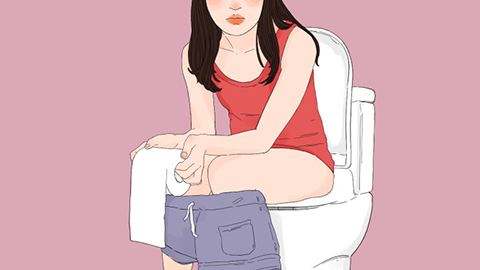What medication can be taken for dry, pellet-like stools?
Normally, dry and pellet-like stools may be caused by insufficient water intake, irregular bowel habits, intestinal flora imbalance, irritable bowel syndrome, diabetes, and other reasons. It is recommended to seek medical advice promptly and use medications such as Bifidobacterium Quadruple Live Tablets, Bacillus Licheniformis Live Capsules, Loperamide Hydrochloride Capsules, and Lactobacillus Tablets under a doctor's guidance. Detailed analysis is as follows:

1. Insufficient Water Intake
When the body lacks sufficient water intake, excessive water in the intestines is absorbed, reducing the water content in the stool. The stool becomes dry and hard due to dehydration, forming a pellet-like appearance. Usually, medication is not necessary. In daily life, ensure adequate water intake, at least 1500-2000 milliliters per day. Drink water in multiple sessions throughout the day rather than waiting until thirsty, especially replenishing fluids promptly after exercise or heavy sweating.
2. Irregular Bowel Habits
Long-term stool retention or not developing regular bowel habits can cause stool to remain in the rectum for prolonged periods. The rectal mucosa continuously absorbs water from the stool, causing it to become dry and hardened. Generally, medication is not required. Try to defecate at a relatively fixed time each day, for example, half an hour after breakfast, when intestinal peristalsis is more active, facilitating bowel movements. Once the urge to defecate arises, go to the toilet promptly and avoid delaying bowel movements.
3. Intestinal Flora Imbalance
Long-term antibiotic use, unbalanced diet, intestinal infections, and other factors can lead to intestinal flora imbalance. A decrease in beneficial bacteria and a relative increase in harmful bacteria may affect the digestive and absorptive functions of the intestines, interfering with normal stool formation and excretion. Abnormal fermentation and decay processes in the intestine increase water absorption from the stool, making it dry and pellet-like. Patients may also experience symptoms such as abdominal distension and abdominal pain. Treatment can include medications such as Bifidobacterium Quadruple Live Tablets, Bacillus Licheniformis Live Capsules, and Compound Lactobacillus Enteric-coated Capsules, as directed by a physician.
4. Irritable Bowel Syndrome
Irritable bowel syndrome may be related to abnormal gastrointestinal motility, visceral hypersensitivity, and psychosocial factors. Patients experience intestinal dysfunction; in the constipation-predominant type of irritable bowel syndrome, intestinal peristalsis slows, prolonging stool retention in the intestines and excessive water absorption, resulting in dry, pellet-like stools. Symptoms such as loss of appetite and early satiety are often present. Patients can follow medical advice to use medications such as Loperamide Hydrochloride Capsules, Lactobacillus Tablets, and Lactulose Oral Solution.
5. Diabetes
Diabetes mainly results from the combined effects of genetic and environmental factors. Genetic susceptibility may make individuals more sensitive to environmental factors, leading to defects in insulin secretion or impaired insulin action. Long-term hyperglycemia can damage autonomic nerves, causing gastrointestinal autonomic neuropathy, slowing gastrointestinal motility, delayed gastric emptying, prolonged transit time in the small intestine and colon, excessive retention of stool in the intestines, excessive water absorption, and resulting in dry, pellet-like stools. Symptoms such as polydipsia (excessive thirst) and polyuria (frequent urination) may also be present. Patients can use medications such as Metformin Hydrochloride Tablets, Glipizide Tablets, and Insulin Aspart Injection under a doctor's instructions.
Maintain a regular lifestyle and ensure sufficient sleep to support normal functioning of all body organs, including intestinal function. Avoid staying up late and aim for 7-8 hours of high-quality sleep each night.









